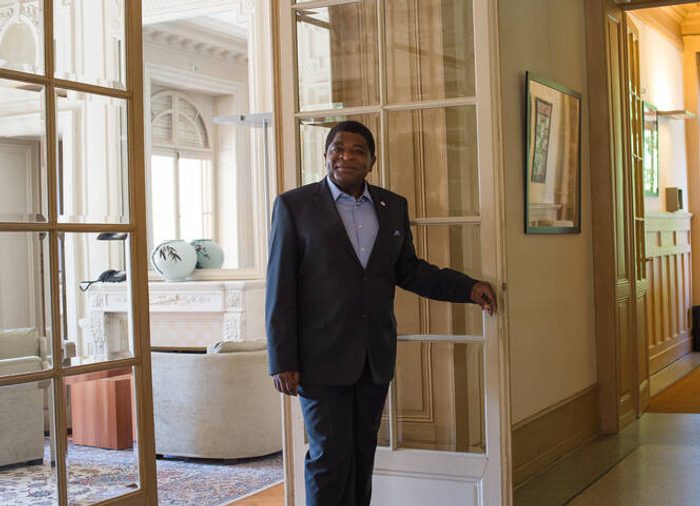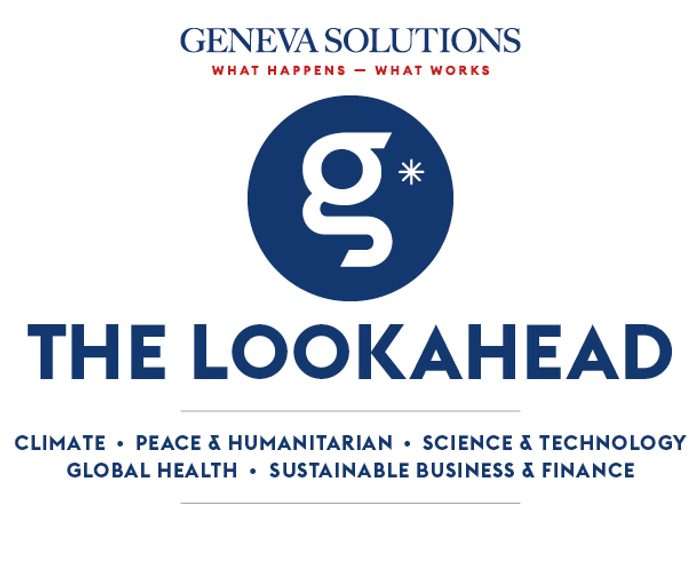Good morning, this is Michelle. Parliamentarians from all regions are assembling in Geneva this week around the theme of building bridges for peace and understanding.
The Inter-Parliamentary Union's annual meeting comes amid heightened geopolitical tensions and conflicts with little prospect of ending soon. All this in an election year for no less than 76 countries.
We republish here our interview with IPU's head, Martin Chungong, from earlier this year about what this means for Africa, where a third of countries is heading to the polls amid deep disenchantment with democracy and growing appeal for military rule. |

|

Martin Chungong, secretary general of the Inter-Parliamentary Union, at the organisation’s villa headquarters known as “Maison des Parlements” in Grand-Saconnex. (IPU)
|
|
IPU's Martin Chungong: keeping faith with democracy.
Dubbed “the United Nations for parliaments”, the Inter-Parliamentary Union has been on a mission to help parliaments promote peace and democracy for 135 years. Its secretary general Martin Chungong speaks to Geneva Solutions about efforts to keep parliamentary talks going in coup-hit nations and between countries at war.
Geneva Solutions
|
|
|
👷🏼Parliamentary diplomacy at work.
The Inter-Parliamentary Union’s assembly kicked off over the weekend with a face-to-face meeting between parliamentary speakers from Armenia and Azerbaijan in a peacebuilding effort by the organisation. It comes just days after Armenian prime minister Nikol Pashinyan said Yerevan risks a war if it fails to return four abandoned Azerbaijani villages held since the 1990s to its long-term adversary in the Caucasus.
|
|
Back in town.
Returning to Geneva for the first time in six years, the assembly will meet until 27 March and is expecting some 140 MPs including from Russia, Ukraine, Palestine and Israel.
|
|
📑 Crunch time.
At the Human Rights Council, amendments to resolutions to be adopted over the ongoing session’s final days next week are due in by Tuesday afternoon. Following its report earlier this month on human rights and international humanitarian law violations by Russia, which Moscow denies, the Commission of Inquiry on Ukraine will see in the coming days whether its mandate is renewed for another year. Draft resolutions to renew similar bodies, such as the fact-finding mission on Iran and the Commission of Inquiry on Syria, have also been tabled, as well as a proposal to condemn the human rights abuses in Myanmar.
The role of the special rapporteur on the right to food, whose current holder, Michael Fakhri, recently condemned the council for inaction on Gaza as Israel “intentionally starves” the besieged population, is also expected to be considered for renewal by the rights body.
|
|
Bring back Zoom.
A group of countries wants the Human Rights Council to ask the UN General Assembly for authorisation to continue using online participation for its meetings. The draft resolution tabled late last week and backed by Switzerland, Cabo Verde, Dominican Republic, Guatemala, Ireland, Malawi, Maldives, Malta, Marshall Islands and Panama, raises concerns about the disproportionate impact that the sudden halt to virtual participation has had on small delegations.
|
|
Too much to handle.
Council president Omar Zniber is also seeking that the rights body postpone a number of activities to 2025 that the cash-strapped UN Human Rights Office can't deliver. That includes a forum on democracy, a report on privacy and discrimination in the digital age and consultations with civil society inside and outside Russia with the UN's expert on Russia, Mariana Katzarova, should her mandate be renewed.
|
|
|
GS news is a new media project covering the world of international cooperation and development. Don’t hesitate to forward our newsletter!
Have a good day!
|

|
|
Avenue du Bouchet 2
1209 Genève
Suisse
|
|
|
|








